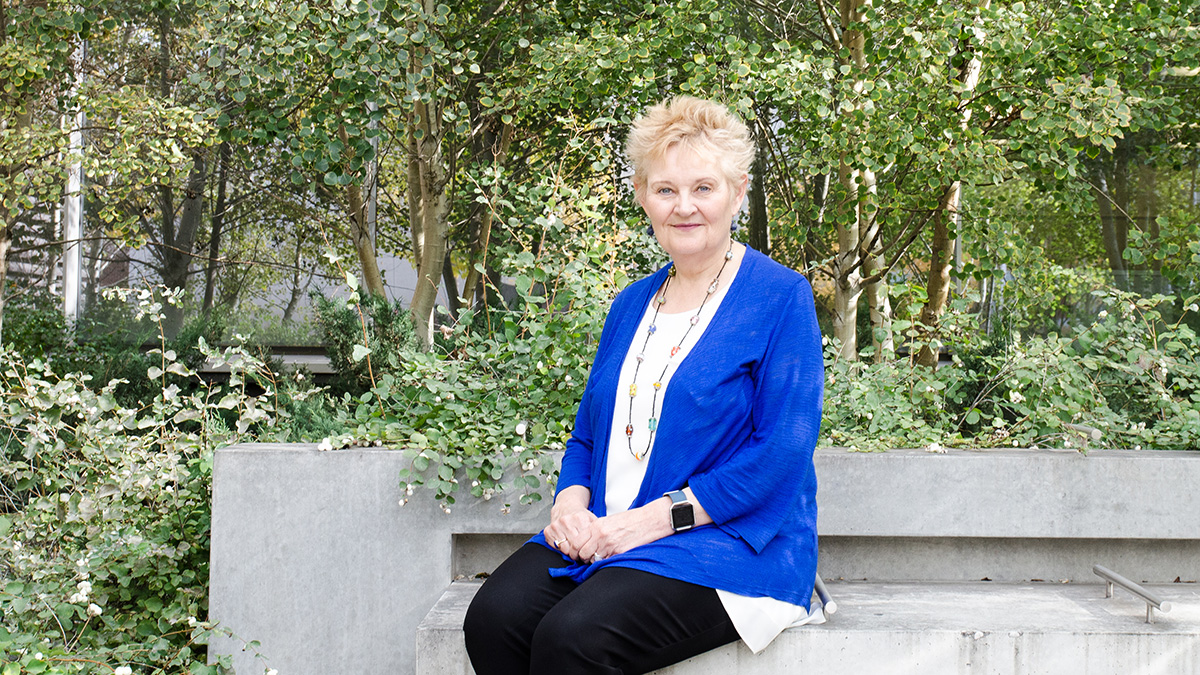Olive Yonge becomes first nursing prof to receive Distinguished University Professor award
 Floyd Robert
Floyd RobertAfter more than 40 years at the University of Alberta, Olive Yonge is reflecting on her education, career, and research on female leadership.
Yonge was named a Distinguished University Professor this year, the first nursing professor to receive the honour that recognizes U of A professors who are global leaders in their discipline. She described being named a Distinguished University Professor as “absolutely surreal.”
“I have the most amazing colleagues and students,” Yonge said. “The students have always been really high quality and so easy to teach because they’re motivated.”
The Distinguished University Professor award recognizes teaching, research, and citizenship and was also awarded to physics professor James Pinfold this year. The award gives professors a research allowance of $20,000 per year for the rest of their academic appointment.
Yonge received her BSc in nursing at the U of A in 1974. Since then, she has seen the Faculty of Nursing expand to include a doctoral program in the 1990s, the first doctoral nursing program in Canada. The nursing program is now ranked fourth in the world according to the QS World University Rankings, which Yonge credits to the early leadership of Shirley Stinson, a retired nursing professor.
“The rankings are new to nursing, but we didn’t do this based on ranking,” she explained. “We based it on a global perspective as citizens of our profession and discipline.”
Now two years away from retirement, Yonge is recognized internationally for her research on training students under experienced nurses. She has also researched courage and leadership after being inspired by her time in “provost-land” as the university’s Vice-Provost, Deputy Provost, and Interim Provost, when she encountered many courageous women in positions of power. Yonge has now interviewed more than 80 female Canadian university administrators including presidents, deans, and chairs about courage. During this time, she noticed that women often feel they lack courage, a gendered issue stemming from childhood.
“Some people have said that they have no courage but we begin talking and there’s tremendous courage in what they’ve done,” she added. “But they dismiss it.”
After retirement, Yonge plans to write a book about courage in leadership, which she said she’s loved researching.
To encourage students to become courageous leaders, Yonge said she wants the U of A to put more effort into creating a leadership culture at the university that is accessible to all students.
“As a student you are emerging, we need to give you opportunities so that you can experience leadership,” she said. “If we want to be a university that’s known for leadership, then we need to do programming that allows you to experience that.”
Yonge said she has enjoyed her experience as a student and a professor at the U of A. Now as a Distinguished University Professor, Yonge she’s still interested in health like she was in her undergrad, and still uses skills she learned in her undergraduate degree.
The two most important lessons Yonge has learned at the U of A, she said, are to be authentic and to respect colleagues and students.
“I would be nothing without a student,” she said. “None of us would exist without you.”




